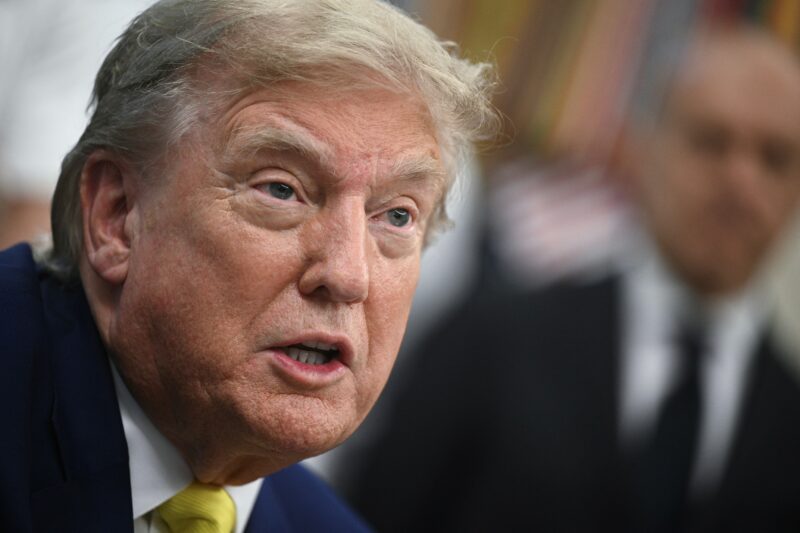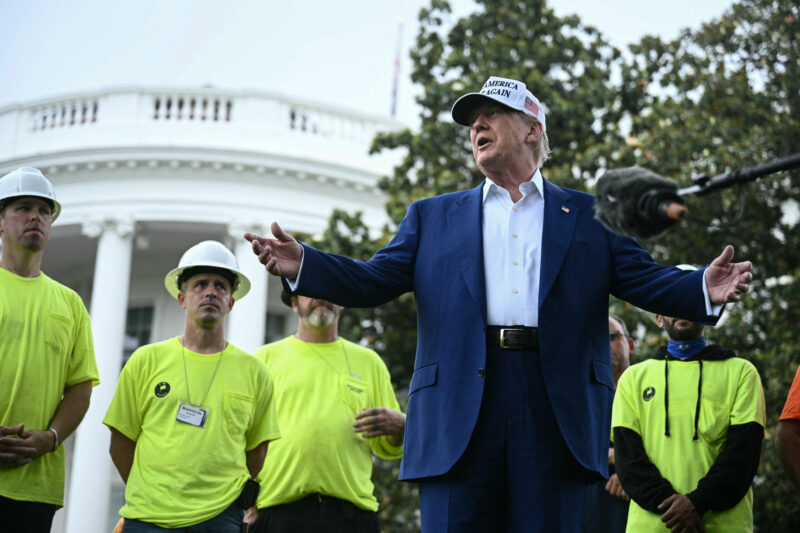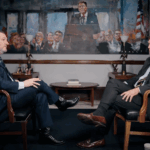United Against Nuclear Iran’s Jason Brodsky: ‘President Trump is telegraphing that Iran can ‘have the regime or they can have the nuclear program. They can’t have both’

Anadolu via Getty Images
A red "flag of revenge" is seen raised atop the dome of the Jamkaran Mosque in Qom, Iran, on June 13, 2025, following Israeli attacks on multiple Iranian cities.
Jason Brodsky, the policy director for United Against Nuclear Iran, told Jewish Insider on Friday morning that he sees Israel’s strikes on Iranian nuclear and military targets as an effort at coercive diplomacy — in full coordination with the Trump administration — attempting to force Iran into a more restrictive nuclear deal amid its recalcitrance in talks with the U.S.
This interview has been edited for length and clarity.
Jewish Insider: What … are your headlines from the last 12 or so hours?
Jason Brodsky: First is that this is the art of the deal. President [Donald] Trump is building leverage and is trying to sharpen the Iranian regime’s choices, that they [can] have the regime or they can have the nuclear program. They can’t have both, and that is what he’s trying to telegraph to them. He’s also trying to telegraph to them that a deadline means a deadline.
He gave them 60 days to agree to a deal. They didn’t do it, and so now there are consequences for that. That’s the other part.
The third part is what was totally outrageous in how the Iranians miscalculated and overplayed their hand, was that … the U.S. [according to recent media reports] made a compromise offer to Iran’s regime where they would have allowed a limited uranium enrichment for 3% until a regional nuclear consortium could be set up, which would then revert to zero enrichment.
The Iranians rejected that too, after the U.S. demonstrated flexibility and compromise. So the Iranians badly miscalculated, and they misread this president, and they thought that he could be manipulated, but he has proven to the world that you know when he means business.
JI: So you see this as being fully coordinated and fully in line with the U.S.? … The initial [statement] from [Secretary of State Marco] Rubio … [was] much less forceful [in support of Israel’s operation] than some of these more recent [comments] from Trump 12 hours later.
JB: I think you saw some of those initial statements because you had ongoing operations. There were ongoing operations today … With respect to Secretary Rubio, President Trump’s statements are the ones that matter. He’s the decision-maker.
The U.S. is also trying, of course, to protect Americans, and wants to avoid retaliation against Americans, but President Trump is leaning into Israel’s strikes in a way that shows that there was tight coordination here. Israel would have never mounted such a very significant, sophisticated operation and widespread operation without U.S. approval and the green light from the United States.
JI: Looking at what hasn’t happened yet: So far, Israel has not targeted some of these more deeply entrenched nuclear sites. From some things I’ve seen, they’ve not necessarily targeted the actual stockpiles of uranium. They haven’t targeted the supreme leader. Why do you think that is?
JB: I think that that could come later on. This is a multiday operation, and it’s going to depend on the Iranian reaction. There’s a report that the Iranians are withdrawing from the nuclear talks. If that’s true, that is increasing the chances that the U.S. will get directly involved, and if the U.S. gets directly involved, then they’re going to go after [the] Fordow [enrichment site buried deep underground] and the hardened targets as well.
JI: The conventional wisdom has been that Israel cannot strike those on their own. Would that still be your assessment?
To destroy [sites] like Fordow, the U.S. would have to be involved. I think Israel’s showing that it could do a grave amount of damage to the regime on its own. But I think to get to some of those hardened targets, the U.S. is going to have to be involved.
JI: What do you think we’re going to see over the next 24-48 hours?
JB: I think you’re going to see more operations to force the Iranian regime to make a choice, as I said before. That is the game plan. That’s the goal here. It’s to degrade the nuclear and military leadership of the Islamic Republic and military assets of the Islamic Republic, to neutralize their ability to retaliate, that’s key.
Israel is disrupting the command and control of the Iranian military. They are degrading assets and causing confusion and paranoia and disorientation, and that is going to slow down any kind of Iranian response. … I think it’s important for all of your readers to be alert to the risk that Iran will try to supercharge a campaign of terrorism abroad targeting Israeli interests and Jewish community interests as well. And I think the Jewish community around the world needs to be alert to that.
JI: If the goal here is to force Iran into some sort of deal, still, what do you think that that deal would or should look like at this point? To your point, the U.S. had offered concessions [in prior rounds of talks].
JB: The U.S. could potential[ly] get a better deal today than yesterday. I think it should be the total dismantlement of the Iranian nuclear program. Total dismantlement. That means zero uranium enrichment, limitations on its ballistic missile program and getting rid of its weaponization program. That’s what should be on the table. And also, the president should be aiming for Iran to cut its support for terror proxies as well. So those are, those are key elements that I think the Trump administration should be pushing for.

































